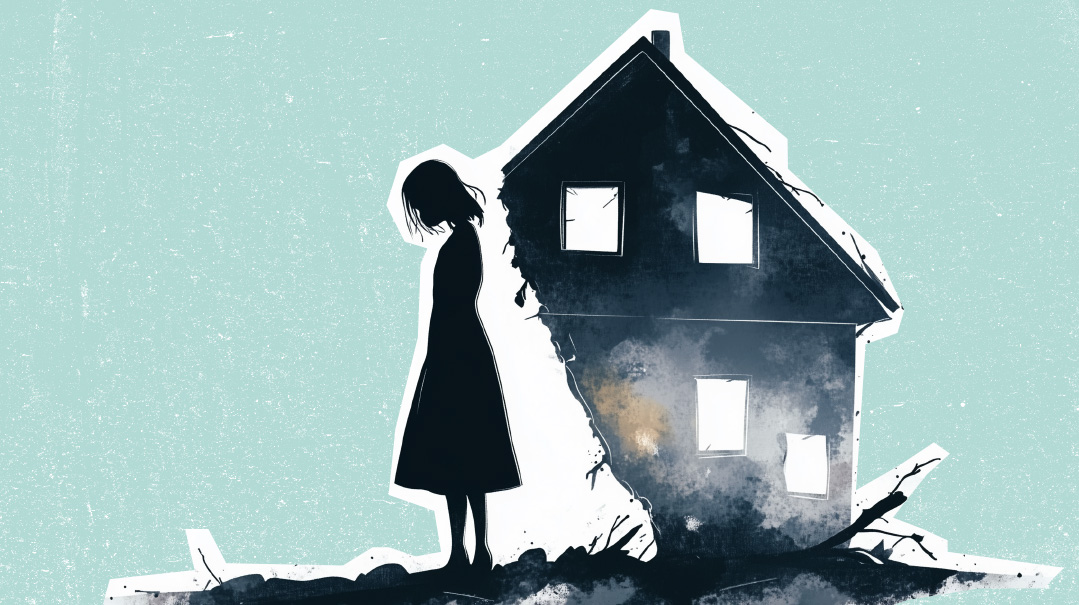Nonstop Criticism

My neighbors didn’t stop correcting their children. Should I say something to them?

Q:
Recently, a neighbor invited our family for Shabbos. While the food looked great, my appetite was absolutely ruined by the atmosphere. Both parents — people who are always respectful and smiling toward my husband and me whenever we meet — corrected and criticized their children nonstop. Every few minutes the husband would bark at his kids in a loud and irritated way, saying things like, “Chaim! Put that down right now!” as if his five-year-old was about to set the house on fire just because he was holding a fork in the air. Everything sounded like an emergency. Meanwhile, Mom’s conversation, quieter but no less menacing, consisted of nothing but criticisms or instructions. “Yael, don’t slouch like that when you’re eating. Yoni, use a napkin. Esti, you’re eating way too fast, slow down. Dov, why are you pushing your food around like that? Stop it!” It went on and on like that.
The children picked on each other in a similar style: “Dovi! Get your hand off my plate!” “Esti, you’re disgusting! You kicked me!” I don’t think anyone uttered a pleasant word to anyone else during the whole meal. The family is obviously in chaos and the parents don’t seem to know anything about healthy parenting techniques. I feel absolutely terrible for those children.
I’ve taken a lot of parenting classes and I feel like I can really help this mom. Would it be wrong for me to call her up and offer her some tips or recommend a good parenting book? Do you think that she would be resentful or grateful if I reached out?
A:
IT sounds like you don’t know these people very well yet — it was your first time in their home. Therefore, you don’t know whether the mom is feeling overwhelmed, helpless, and desperate for good advice or whether she’s confident in her parenting approach. In fact, decades ago, most parents probably sounded something like this couple, since an authoritarian parenting style was more prevalent than it is now. Parents confidently confronted their kids, telling them what to do and reprimanding them as necessary. Today, many parents like yourself are far more sensitive to the emotional atmosphere in the home. They believe that gentle and positive parenting produces healthier outcomes.
Indeed, as I’ve stated on previous occasions, research has since established that authoritative parenting, characterized by both warmth and guidance, is a more ideal parenting approach. The 80-20 ratio of good-feeling to not-good-feeling interventions mirrors the Torah-based approach of “the right hand (the stronger hand) draws near, while the left hand (the weaker hand) pushes away.” Unfortunately, what you witnessed sounds more like the 0-100 Rule, where parents offer only correction, and neglect to give their kids praise, smiles, jokes, shows of interest, positive comments, engaging questions, encouragement, and other forms of truly pleasant communication.
Interestingly, the nonstop correction — and especially the father’s harsh and loud tone — was distressing for you even for the short time you had to endure it. You’re naturally concerned for the well-being of the kids who are clearly living with this onslaught on a daily basis. You want to help.
However, it seems that the parents believe they’re doing the right thing; they wouldn’t have done it in front of you and your husband if they felt it was wrong. Moreover, it’s very possible that they’re not even aware of how they’re coming across to their kids and to their guests. After all, no one intentionally makes themselves look bad and no parent intentionally uses techniques that are likely to both worsen behavior and harm the parent-child relationship. Moreover, a parent who barks at his kid can be completely unaware of how intimidating and rejecting he sounds or how unnecessary and unwarranted such an aggressive tone is for everyday parenting. Most likely, the dad is just trying to get his kid’s attention and feels he needs to raise his voice to do so.
How would you — the guest at his table — help him become aware of what he’s actually looking and sounding like? How would you help the mom realize that she hasn’t uttered a kind word to her kids during the entire meal? Again, most of us well-intentioned, loving parents have no clue of what we actually sound like when we’re displeased, and many of us are not conscious of our moment-to-moment communication ratio over the course of a meal (how many of us intentionally say four good-feeling comments before uttering a correction or instruction?). But would any of us welcome feedback from neighbors or strangers who spot us in action in our home or in the supermarket or elsewhere? I don’t think so.
So what can you do? Perhaps you can befriend this mom. As you get to know her, you’ll be able to discuss the things that moms discuss, including parenting. At that point you can invite her to attend a local parenting talk with you or you can recommend a great book you’ve “just read.” Perhaps you can invite the family to your house for a Shabbos meal where the parents will be able to observe positive parenting in action.
(Originally featured in Family First, Issue 937)
Oops! We could not locate your form.




